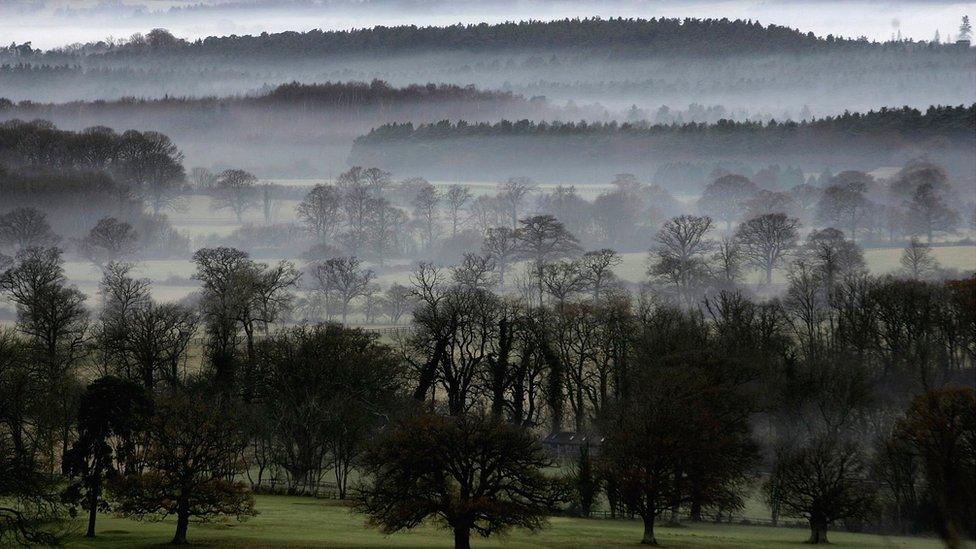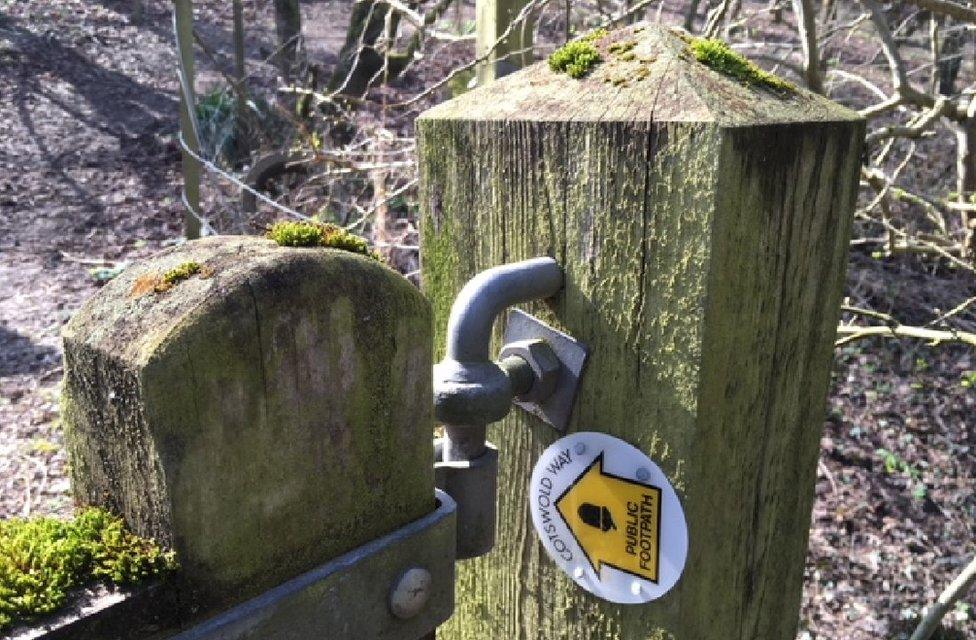'Radical change' needed on countryside
- Published

The UK government is failing rural communities and the natural environment, a report says.
The Lords Select Committee document says there should be radical change in how the countryside is looked after.
It recommends stripping the environment department Defra of its power to regulate on rural affairs, and reforming the Countryside Code.
The Lords said Defra had focused too much on farming and agriculture, rather than other aspects of rural life.
The report describes a "consistent failure, over a number of years, to prioritise the 'rural affairs' element" of the remit of the Department for Environment, Food and Rural Affairs (Defra).
All this, it says, has had a "profound negative impact ... to the cost of us all".
The Select Committee on the Natural Environment and Rural Communities (NERC) Act 2006 recommends that responsibility for rural affairs should transfer to the Ministry of Housing, Communities, and Local Government.
According to the report, the body responsible for conserving the natural environment and promoting public access to the land, Natural England (NE), has been "hollowed out" and is now largely ineffective.
The report's chairman, Lord Cameron of Dillington, said: "The last major research was done by the Commission for Social Mobility last year, and it said some of the worst spots for deprivation and intergenerational poverty exists in rural England.
"That it's as bad as if not worse than our inner cities. We feel they have been neglected by government, that Defra is not doing a good job and that changes need to be made."
Budgets slashed
Severe budget cuts and the abolition of the Rural Communities Policy Unit means that NE no longer has the budget or power to effectively and independently regulate government policy. It also means that not enough is being done to promote responsible access to the countryside.
Taking advice from the National Farmers Union, it says that the Countryside Code should be re-launched, so more people are aware of how to properly enjoy rural areas.

The committee recommends that a subsidy system should give public money to landowners who maintain footpaths
This code was designed as a standard set of guidelines for members of the public, to ensure respect and enjoyment in the countryside.
A Defra spokesperson said: "Whether it is developing a new agricultural system outside the EU or safeguarding our countryside, the needs of our rural communities sit at the heart of everything we do."
"We are continuing to champion rural affairs across government - driving forward high-speed broadband in the most hard to reach areas, increasing housing availability and supporting the creation of more than 6,000 jobs through our dedicated fund for rural businesses."
Some people living in rural areas see a role for the community too. Justin Dyson, a resident of Croyde in Devon, volunteers at a local centre for the elderly.
"Life isn't great here for old people because public transport is terrible and they're alone a lot. But I think it's up to us to help - it's not all down to the government. We need to take responsibility," he told BBC News.
Improving access
The Lords committee also considered concerns over the long-term funding and sustainability of the National Trails Network.
In a measure also proposed by the Environment Secretary Michael Gove, the committee recommends that a post-Brexit subsidy system should give public money to landowners who maintain footpaths and allow more access to their land.
It also suggests that National Trails could be sponsored, calling for Defra to work with the ramblers and other organisations to develop proposals for long-term management and maintenance funding.
Stephen Russell from the Ramblers Association said that Natural England had been being "hamstrung" by budget cuts: "The path network, the trails themselves, they benefit so many people: people's health, their well-being, the local economies. It's too important to not address, because of all the different benefits that they bring."
"We ran a survey in 2015 that pointed to a path network that was generally in good condition but with maybe 10% of the network classed as impassable, and an additional 40% that was in need of improvement."
The committee also highlights concerns over the provision of rural housing, saying Natural England has "insufficient regard for landscapes", when offering planning guidance.
Lauren Kielb, a resident in Bradford on Avon told the BBC there wasn't enough attention paid to planning in rural towns:
"We've got lots of new housing coming here in Bradford on Avon and I'm worried about what the impact will be," she said. "The school here is getting larger so it will alienate the local villages from having access to that secondary school. They will become cut off from it."
In addition, the Lords committee report says the requirement for public authorities to "have regard" to biodiversity when exercising their functions is ineffective.
The report recommends the NERC Act should be amended in order to add a reporting requirement to the duty and the government should also consider strengthening the wording.
Follow Claire on Twitter., external